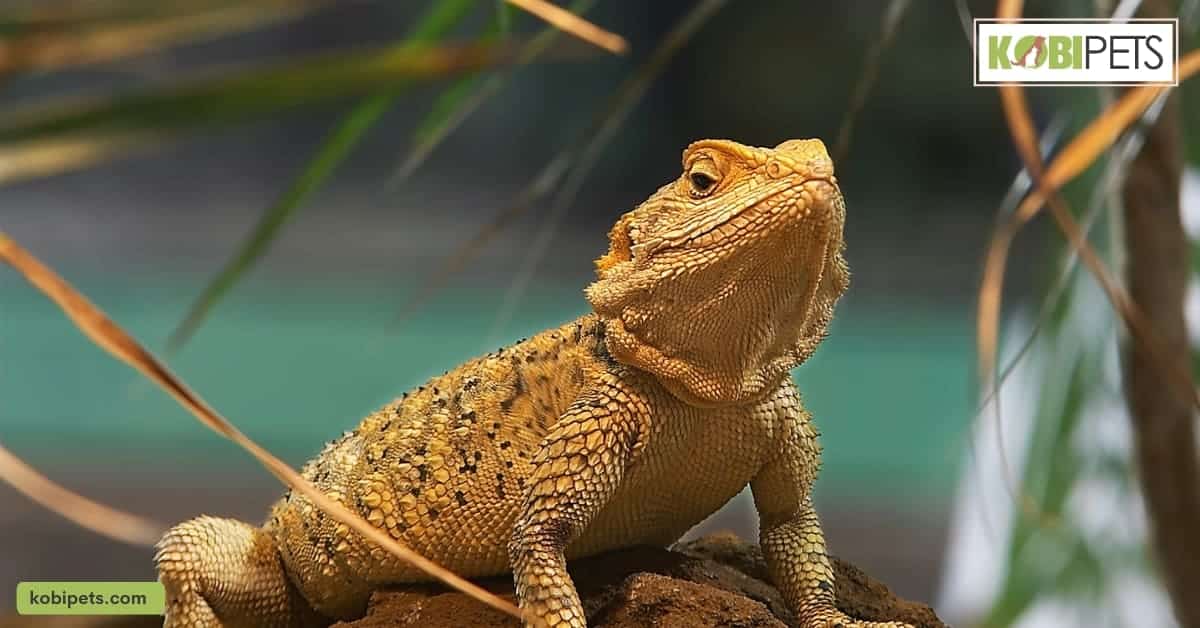
The Bearded Dragon is a popular pet choice due to its friendly, docile nature and manageable size. They are relatively low-maintenance reptiles that can live up to 10 years with proper care. They thrive in warm, dry conditions and enjoy basking in direct sunlight to regulate their body temperature.
Additionally, the Bearded Dragon has many unique behaviors that add to its charm. They are playful, curious creatures that can often be seen basking in the sun or exhibiting signs of affection such as arm-waving or bobbing their heads. They also make exceptional display pets with their bright colors and fascinating behaviors.
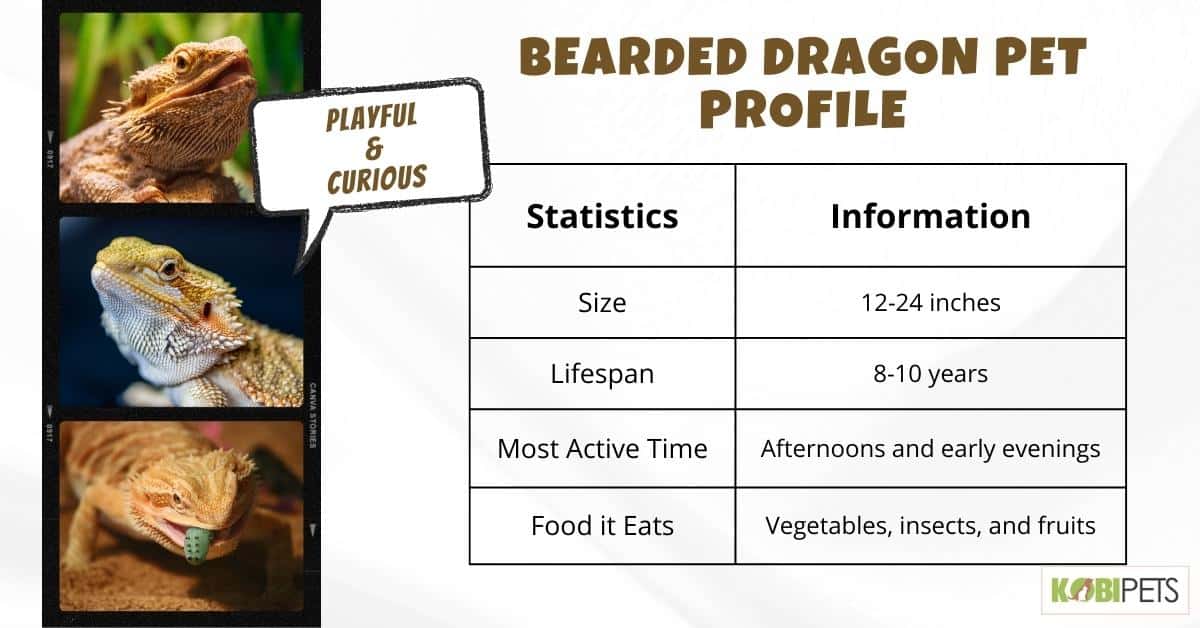
General Characteristics of Bearded Dragons
Bearded Dragons are relatively large lizards that are native to Australia and nearby desert regions. On average, wild bearded dragons can grow up to 24 inches in length. They have a spiky ridge along their back and tail and their distinctive double beards on either side of the neck make them easily recognizable.
These omnivores are known for having calm temperaments, making them popular pets among reptile enthusiasts. Also called “beardies”, these fascinating creatures come in a range of color variations ranging from yellowish-brown, red, orange, and black stripes. Bearded dragons also have a unique feature: They can independently move each of their eyes allowing them to scan a larger area at once.
No matter the breed or lifestyle preference, bearded dragons require plenty of room to explore and stimulate their minds with activities like hide-and-seek or running across obstacles like rocks and logs.
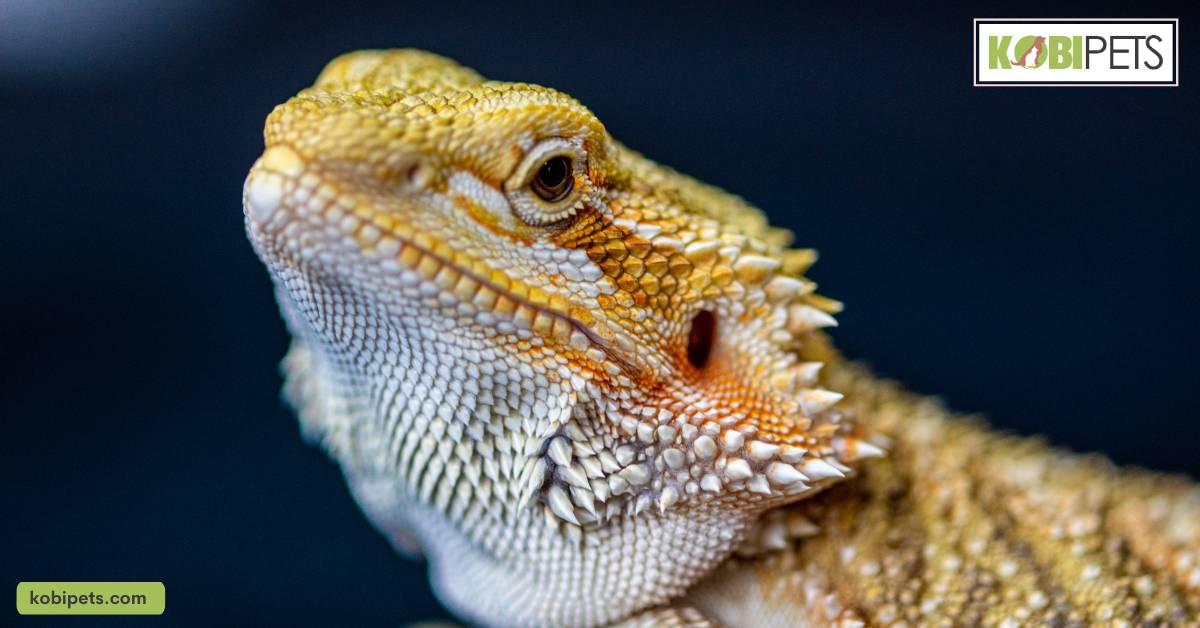
Behavior and Temperament of Bearded Dragon
Bearded dragons are an interesting and friendly type of lizard, making them great pets for reptile lovers. When you get a bearded dragon for the first time, it is important to be patient and gentle when handling them as it can be easily scared and may hide or go into its shells.
A reasonable amount of physical contact with your pet is needed in order to facilitate bonding with your new friend. Bearded Dragons usually have docile temperaments and require very little daily maintenance, so they can make great additions to any home, no matter the size.
Be careful not to surprise them when interacting with them as they can tend to be skittish around loud noises or sudden movements. With proper care and attention, a bearded dragon’s diet, housing environment, and overall health will be greatly improved.
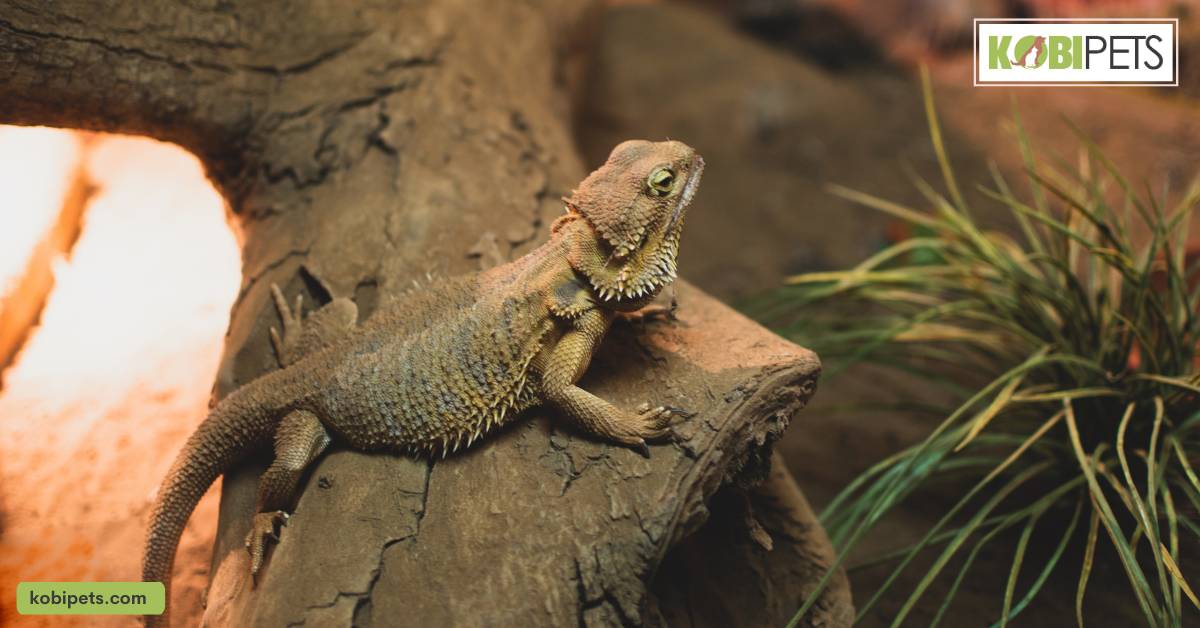
Ideal Environment for a Pet Bearded Dragon
Keeping a pet bearded dragon can be an enjoyable and rewarding experience for many, but it’s important to understand the needs of this type of reptile to ensure it is kept in its ideal environment. Bearded dragons do best when kept in temperatures between 72-90 degrees Fahrenheit with access to both basking and cool areas depending on their needs at any given time.
They also require 12 hours of light each day, typically combined with natural sunlight and UVB lighting from a quality source. Humidity levels should generally remain between 30% and 45%, although higher humidity levels may be necessary during shedding seasons.
A variety of hiding options including caves and logs should also be available for your bearded dragon to make sure that it feels safe and secure in its encasement. Finally, a diet consisting primarily of live insects supplemented by fresh vegetables should keep your pet well-nourished and healthy provided they the right amounts are consumed daily.
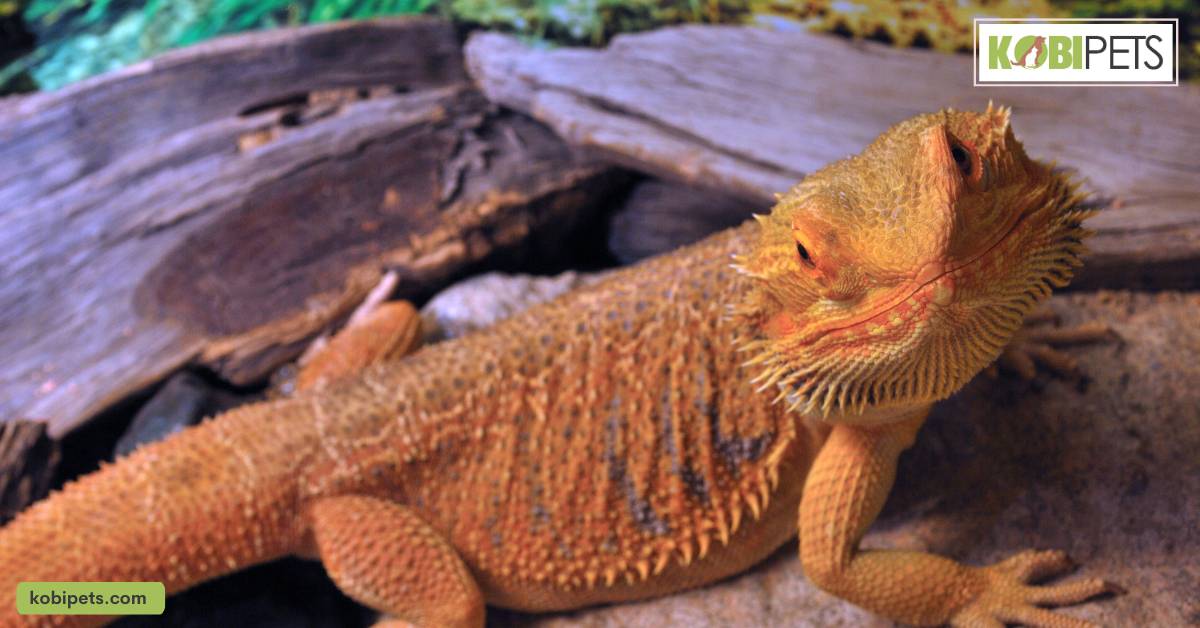
Feeding and Nutrition Requirements for Bearded Dragons
A bearded dragon requires a specific diet and feeding plan to ensure their long-term health and well-being, making them an ideal pet for many reptile lovers. Proper nutrition is essential for bearded dragons since their little bodies require a balanced diet of insects, leafy greens, and occasionally fruits. Insects should make up the bulk of the dragon’s food, while plant matter should be introduced in small amounts to balance out the nutrition.
Feeding your bearded dragon twice a day will provide them with the necessary energy to stay active and healthy; however, when it comes to portion sizes for snacks or treats, play it safe and stick with moderation! A vitamin and calcium supplement can also help round out their nutritional requirements.
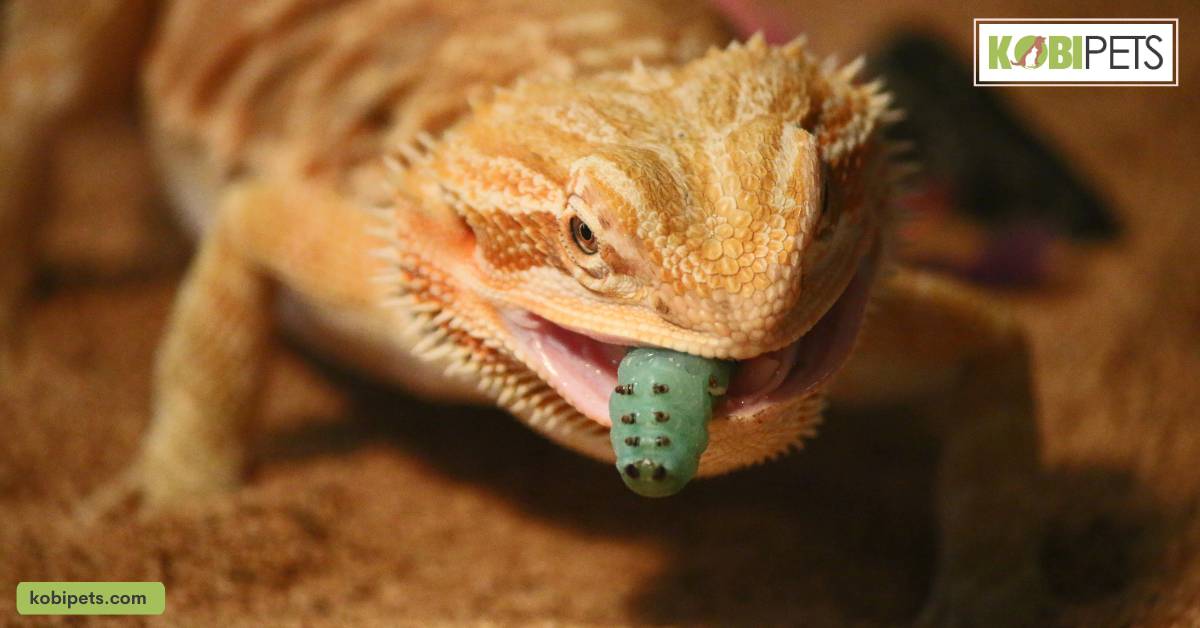
How to Handle and Care for a Pet-Bearded Dragon
Handling and caring for a pet bearded dragon can be quite an enjoyable experience. After the reptile is acquired, the new owner should get the necessary supplies like an aquarium or terrarium, a heating device, a lighting fixture, and substrate material.
Additionally, maintaining proper temperature and humidity levels within the enclosure is essential for any bearded dragon’s health and well-being. Owners should also prepare a regular diet suitable for their beardie consisting of crickets, mealworms, and other insects as well as leafy greens to ensure that it gets all of its dietary needs met.
Lastly, providing plenty of affectionate handling during regular check-ups to monitor health is important in any relationship between guardian and pet. With some basic knowledge, this fascinating creature can make a wonderful companion while providing years of loving memories.
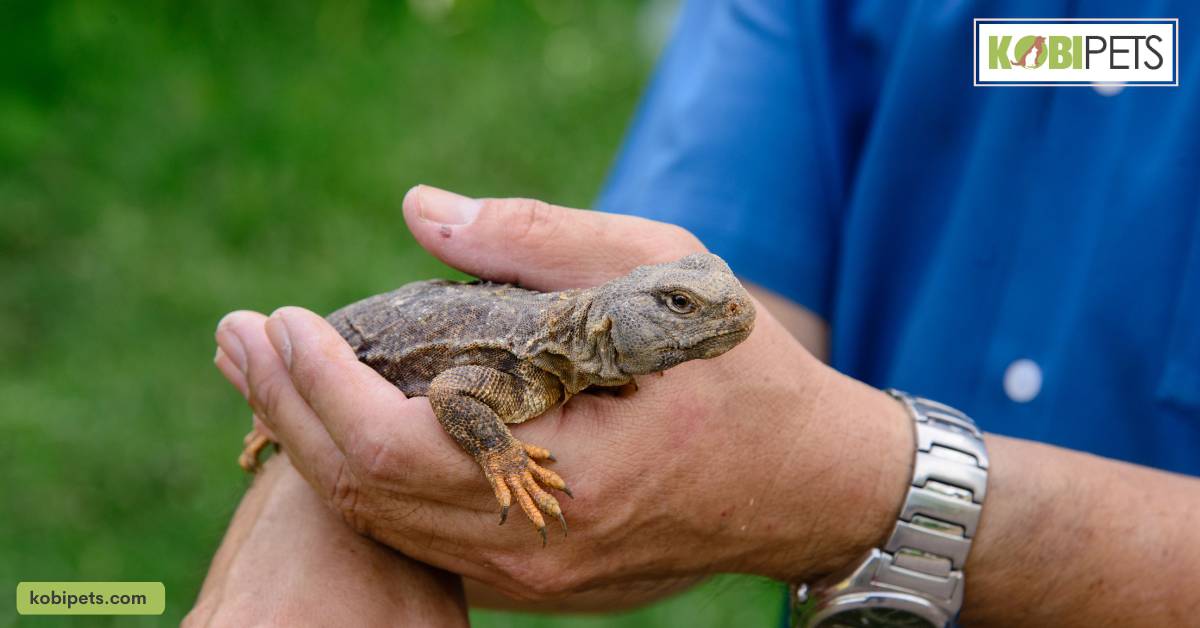
Health Risks and Common Diseases Associated with Bearded Dragons
Keeping an exotic pet such as the surprisingly popular bearded dragon can be very rewarding, but it also comes with responsibility. Just like any other type of pet, proper care and knowledge are essential for your reptilian friend’s health.
Bearded dragon owners should be aware of the common health risks and diseases that their pets may experience, such as parasites, metabolic bone disease, respiratory infections, and obesity. With a good diet that is supplemented with vitamins and proper UVB exposure, these risks can be minimized.
However, if your bearded dragon exhibits any atypical behavior or signs of illness, you should consult a veterinarian to determine the best course of action. Proper preventive care is key to keeping your pet healthy and happy.
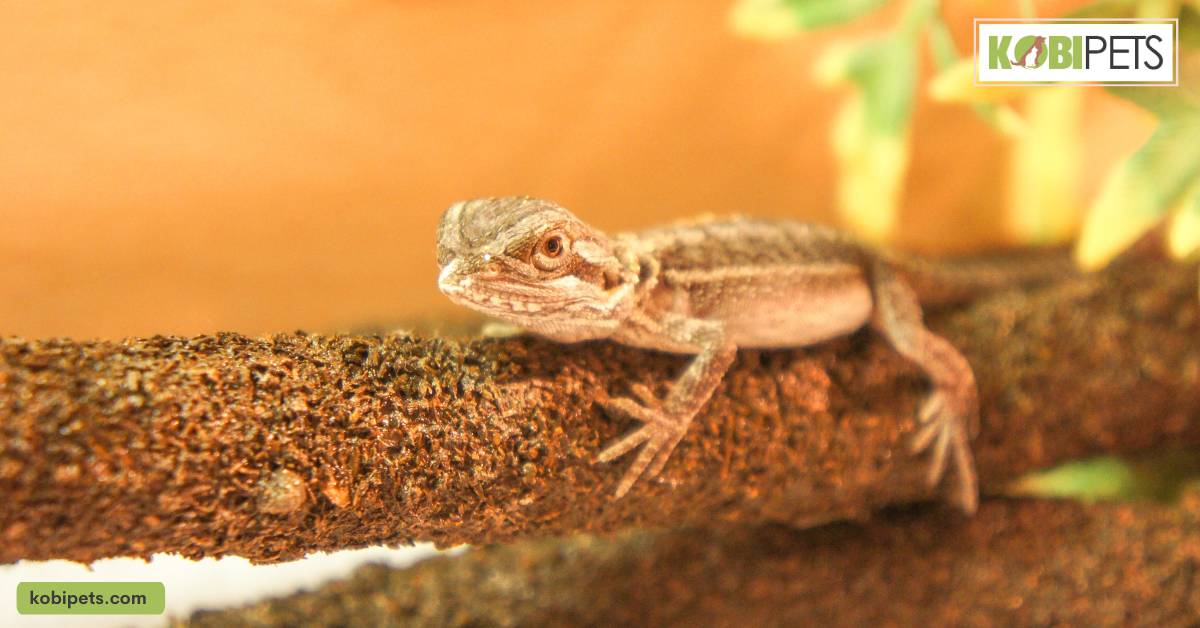
Signs of Stress in Bearded Dragons
Bearded dragons can become stressed in a variety of situations, usually involving either environmental changes or contact with humans. Some signs that a bearded dragon is feeling stress include gaping at the mouth and bobbing the head up and down, rapid breathing, refusal to eat, pacing back and forth, and hiding or withdrawing from the interaction.
High levels of stress can have serious health consequences for your pet bearded dragon, so it is important to be mindful of its environment and limit any human interaction when possible. If you notice signs of stress in your bearded dragon, provide it with a comfortable environment, avoid sudden changes from handling it, and give it time to relax alone.
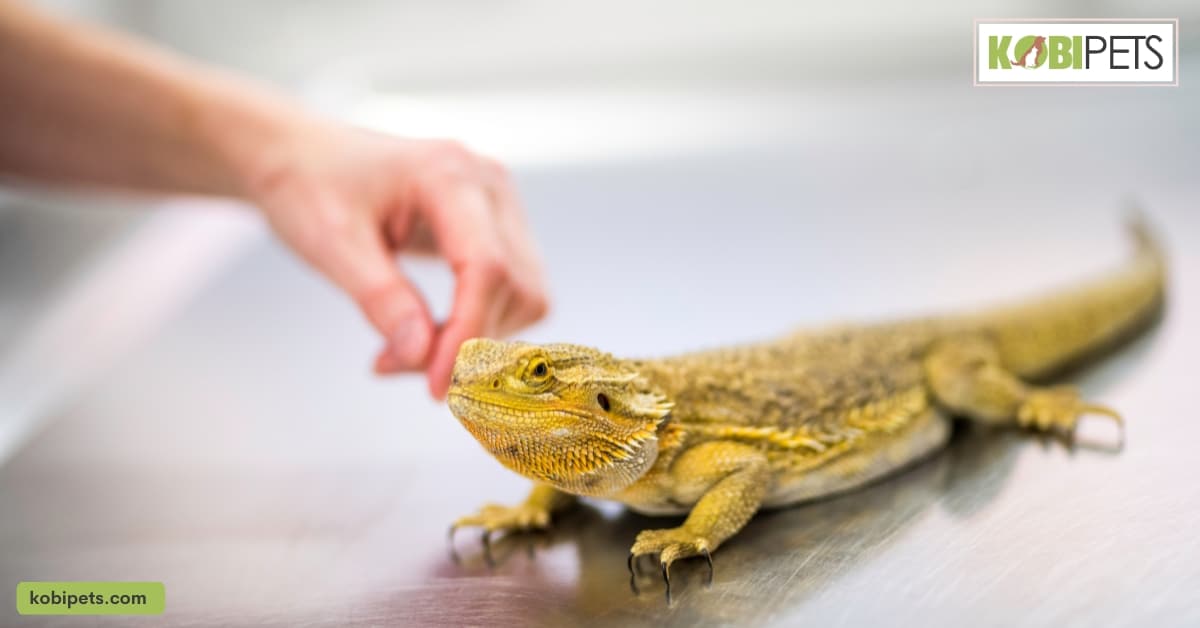
Cost of Owning a Pet Bearded Dragon
Owning a pet can be a rewarding experience but it also comes with an associated cost. Those looking to own a Bearded Dragon, for example, should know that the initial costs may be higher when compared to other animals. Depending on the age and health status of the dragon, an owner can expect to pay anywhere from $20-$400 for a starter beardie.
In addition, the cage or habitat will need to be large enough to house your pet and accommodate light fixtures, fixtures such as climbing branches, plants, and other accessories. Other necessary expenses come in the form of food and supplements which could include live insects and fruit smoothies, as well as a sand substrate which must be monitored daily.
Overall, investing in a Bearded Dragon requires dedication and commitment in terms of both financial and temporal resources. However, those who are ready should anticipate many years of enjoyment with their new friend.
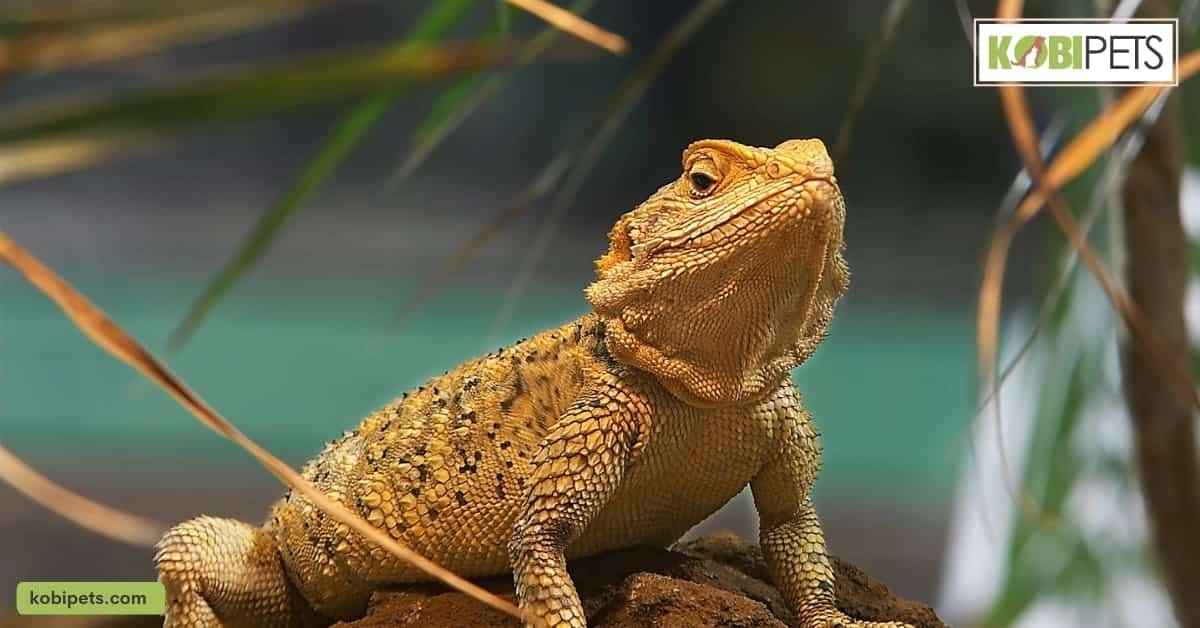
In Conclusion
Bearded Dragons make great pets for reptile lovers. They require very little maintenance and are relatively low-cost to own when considering the initial purchase price, habitat setup, and diet. With proper care, these docile creatures can live long and healthy lives of up to 10 years or more.
Just remember to be patient with them during interactions and provide them with a safe, comfortable environment for optimal health. Owning a Bearded Dragon can be an incredibly rewarding experience if you are willing to dedicate the time and resources needed for their care.






